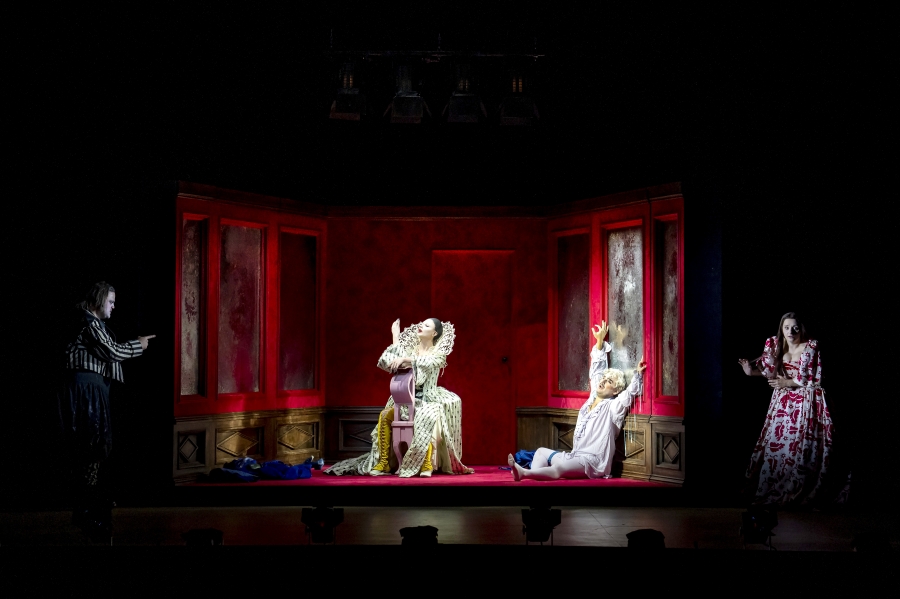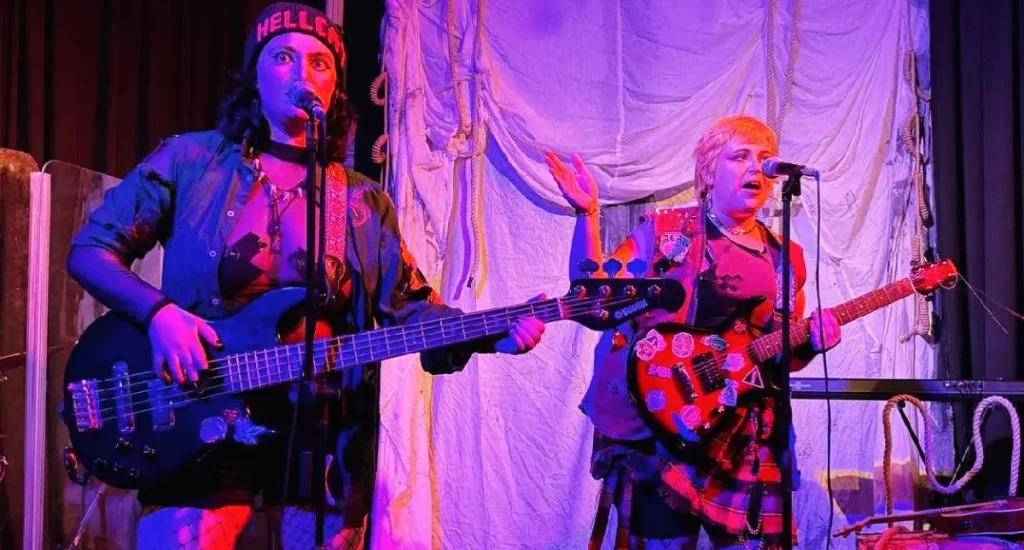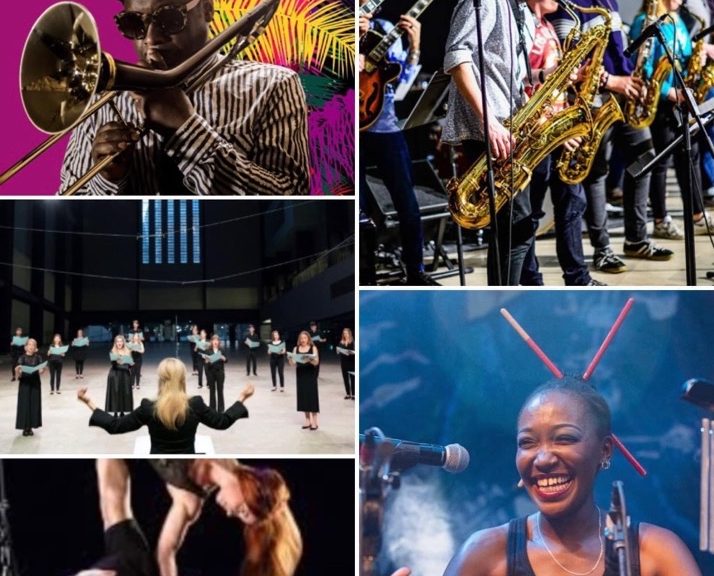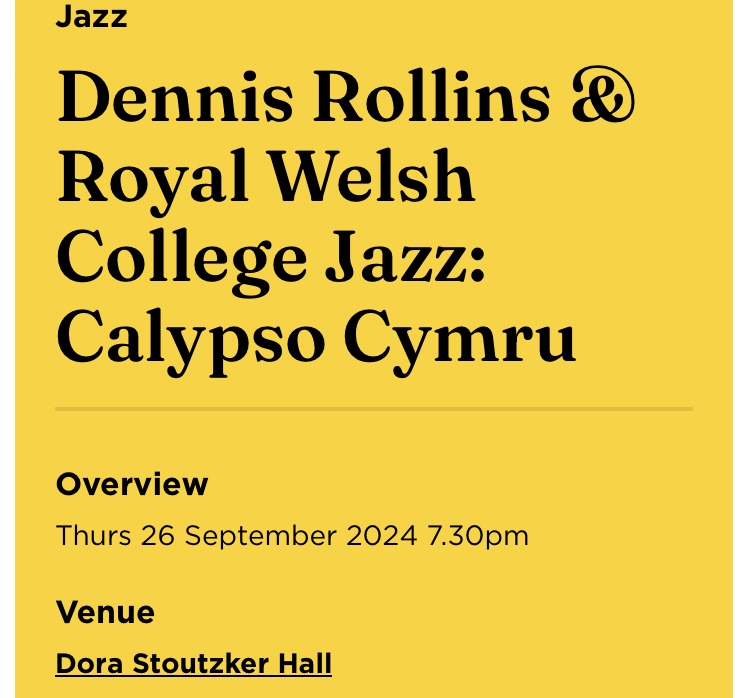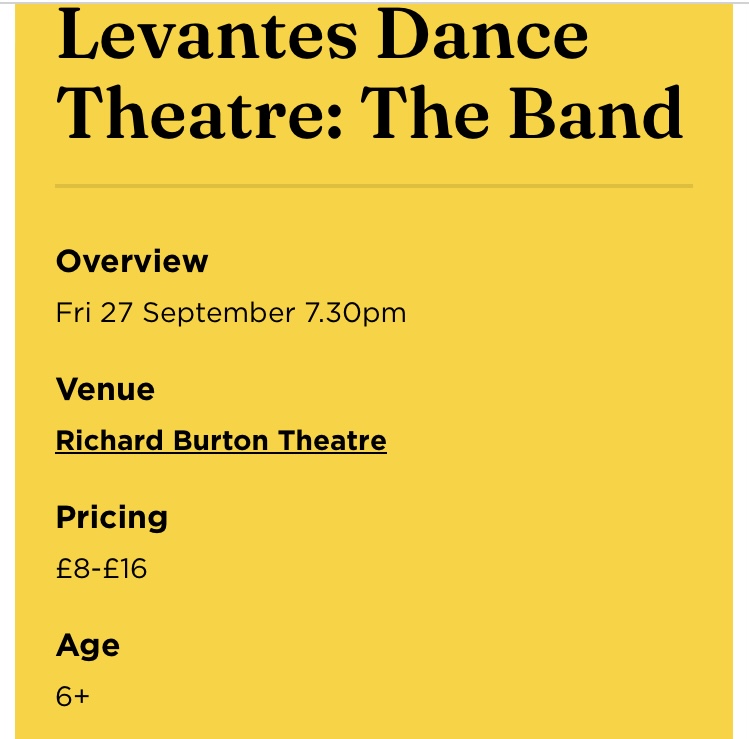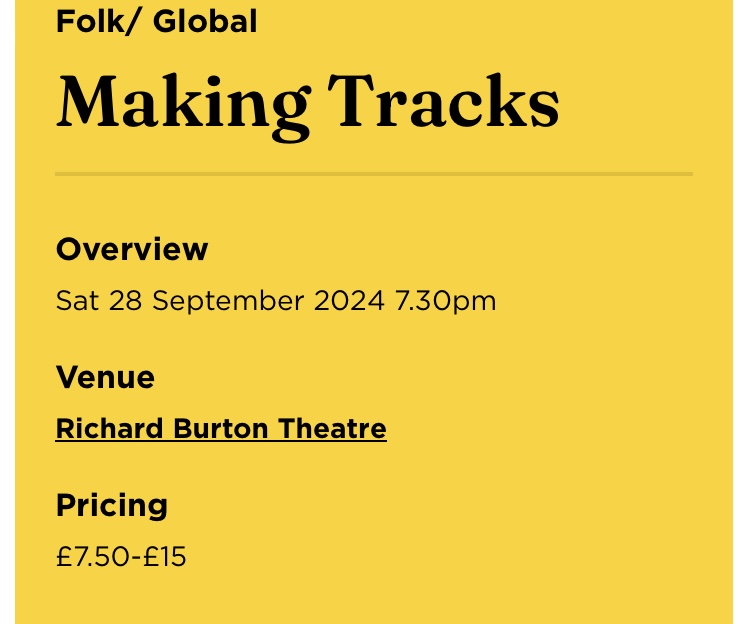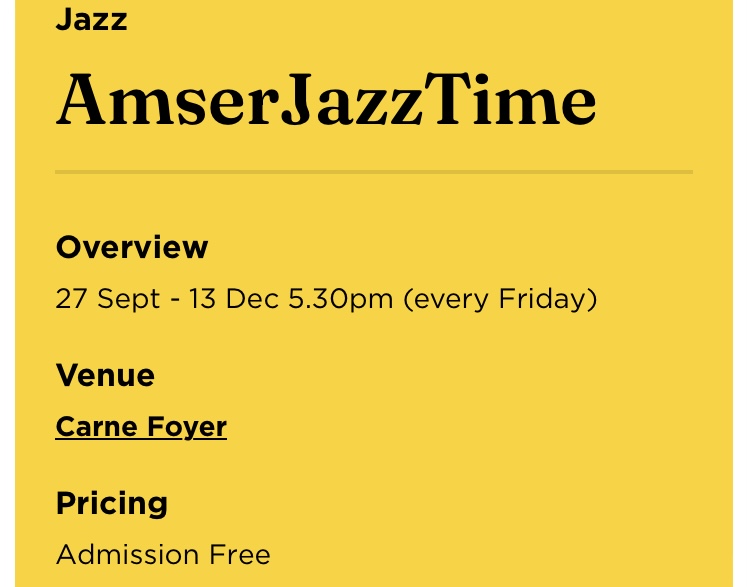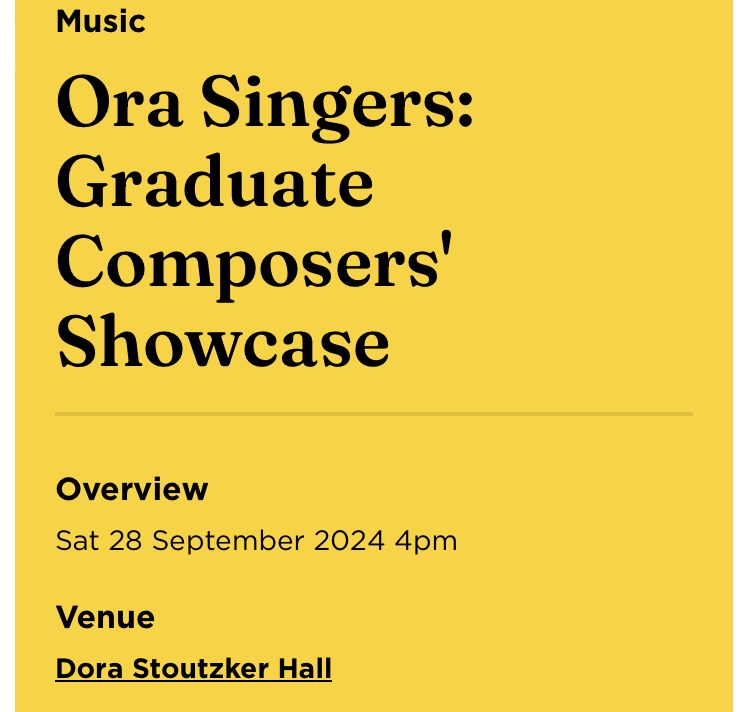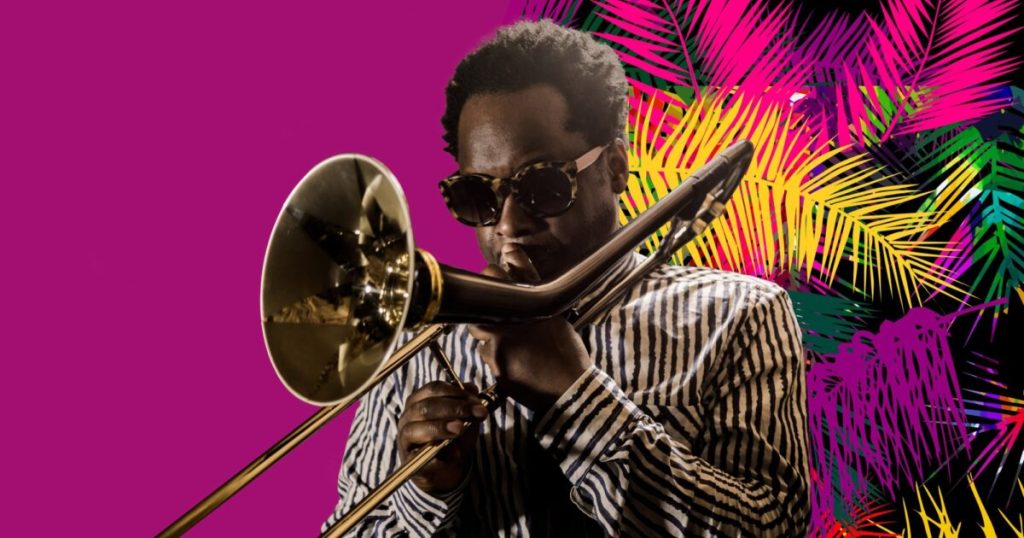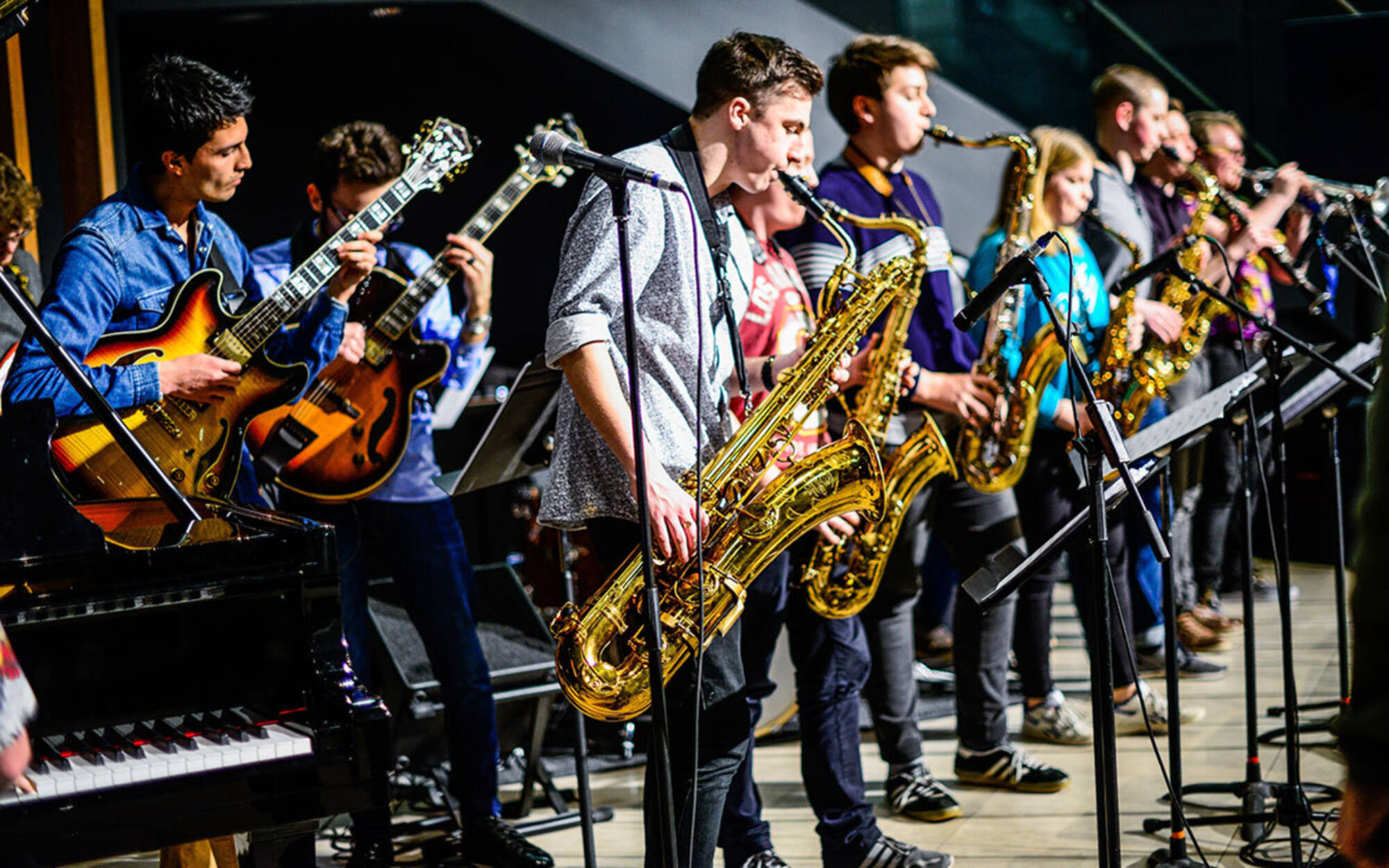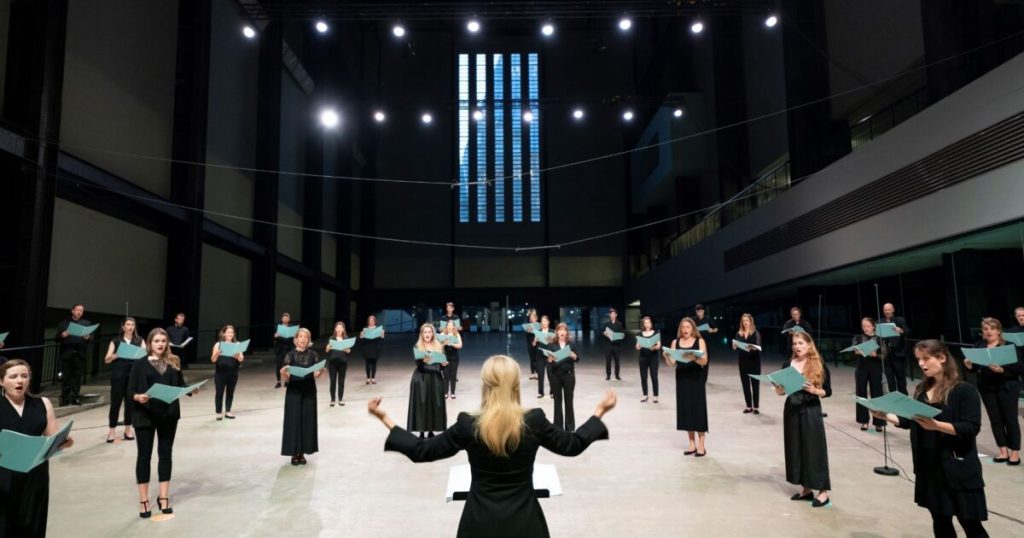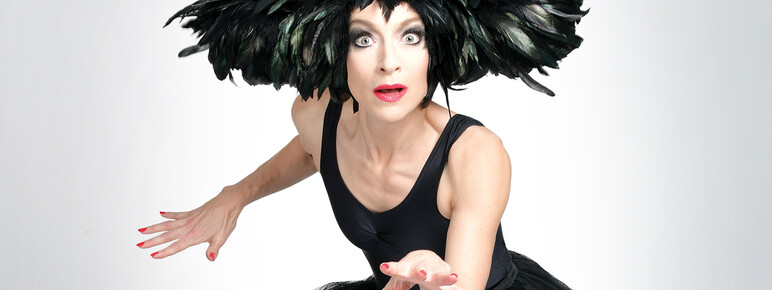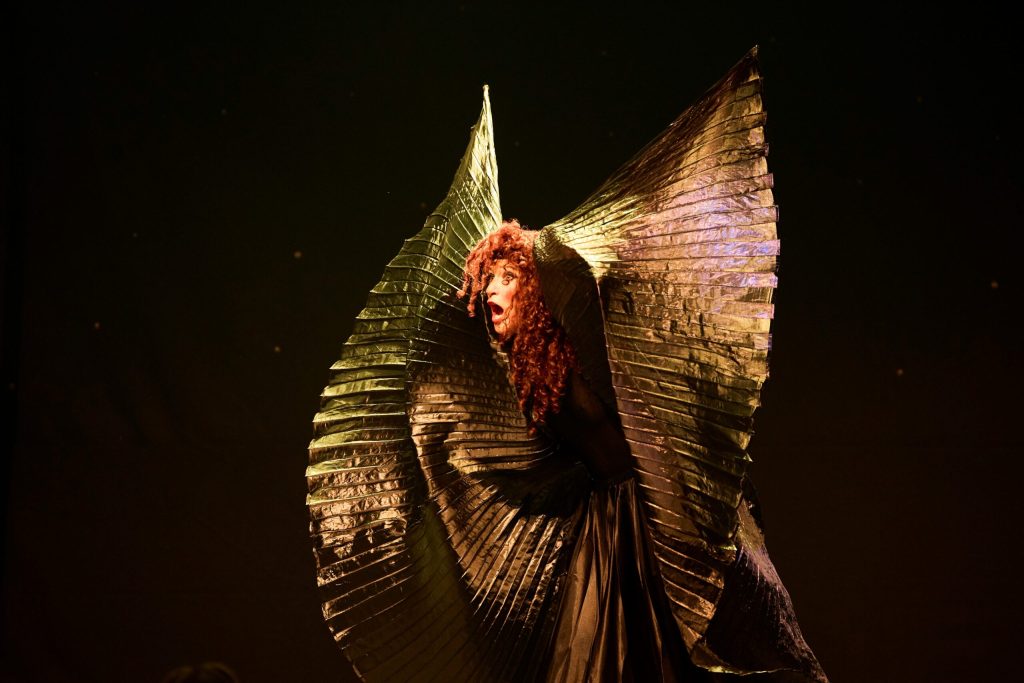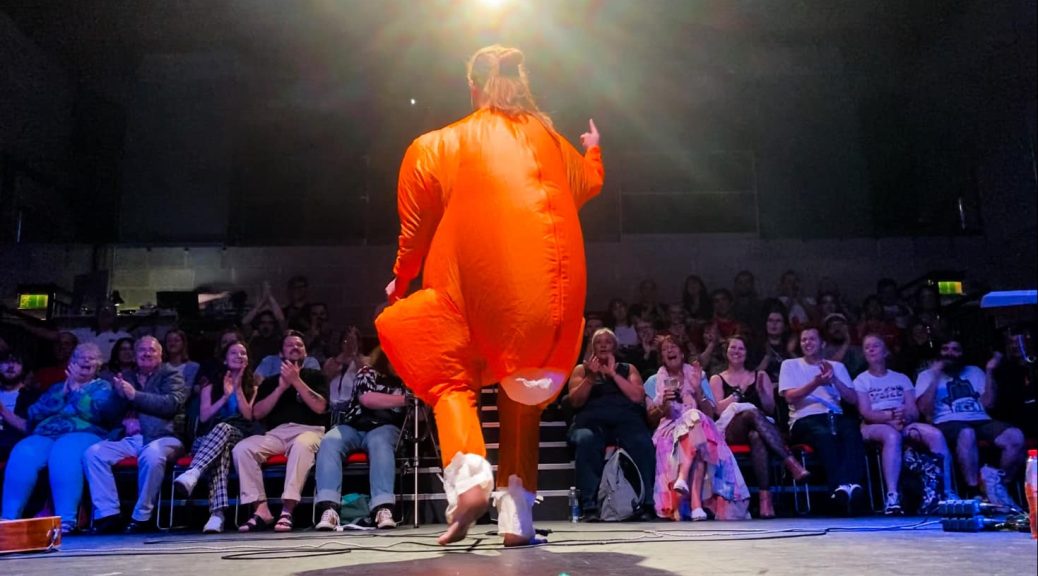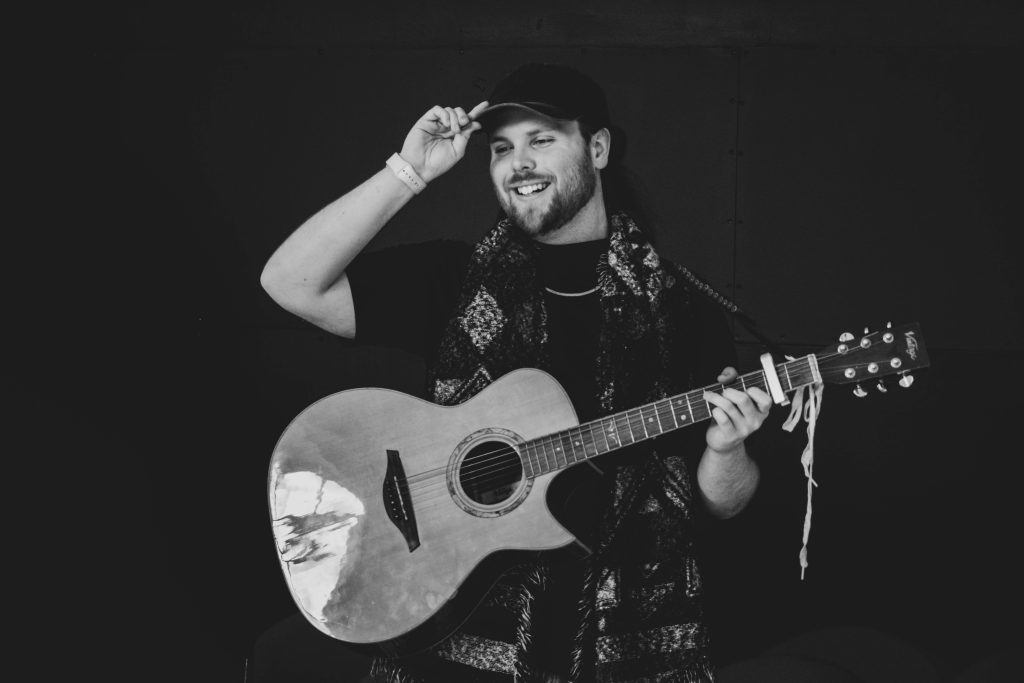 (4 / 5)
(4 / 5)
What a privilege it is to be able to see Marina Abramović’s work so often in the current day. Being brought up studying her performance art pieces, over the years, Abramović seems to be creating more and more work in London and each one new and as fascinating as the next and I feel lucky to be able to see them first hand and continue to be inspired.
As part of the Multitudes Festival, she has joined with pianist Igor Levit to combine classical music and her quintessential durational work to create a performance across 20 hours. The options to come in and out throughout these 20 hours or find yourself with a 1 hour slot in itself delivers a unique experience for each audience member and the feat of the art is, not only what Abramović is famous for, her bread and butter, but still managing to be something new and exciting.
Vexations is based on a one page score of its namesake. While simplistic on paper, the score is ordered to repeat multiple times and throughout the 20 hours, Levit does just that. But it changes; the tempo, the tone, the volume, the intention, it is somehow different every time and even in a 1 hour slot, it lulls you, surprises you, creates a dreamlike state and shocks you. You find each iteration to be new in some way and never the same as the previous. Levit first performed this over live stream during the Covid lockdown, with an aim to comment on the experience of all but especially the hardships of artists at the time. There certainly feels like a poignant commentary on this, and becomes relatable for everyone; who else remembers the days of doing the same things over and over, but those rare times of something new to break up those long years?
Front and centre, Levit is at his piano, tearing at sheets when a page is complete and throwing it in disarray on the stage, building and building over the hours. He approaches the music each time as if it is something new. By my slot, 7 hours have passed, and the endurance is clear and painful, with movement in his body, changes from sitting to standing, uncomfortable and becoming stiff, an almost madness in his eyes but also something playful alongside it. Untouched snacks are provided to satiate but he never reaches for them. He does however abruptly break, a strange moment when looking around the auditorium, while he goes to the toilet or grabs some food, that the durational audience members treat this as some kind of break, to check their phones or break themselves; almost like a unwritten interval. Watching Levit himself, while directly or through the huge mirror above, looking down like a topsy-turvy world, is intoxicating and strangely, the music at no point becomes unbearable or monotonous.
To accompany him, the black and white tiled stage is littered with well placed seating and audience members, chosen to sit and basque in the performance, eyes closed and in the moment. This is facilitated by two performers who move around with strong intent but at glacial speeds and no emotion. It is somewhat frightening but also calming at the same time. A wave of adrenaline as they come to the audience, breaking the fourth wall, will I be next? Another wave of disappointment (or maybe relief) when you’re not. But there’s also a tenderness in the blank faces and a sense of care by how they move and how they handle the audience members. It feels like a less aggressive selection process for a school sports team, or like becoming a “chosen one” from a crowd, being brought through a wall or veil we cannot see, highlighted by the preparation of shoe removal before stepping on the tiles. And watching this movement also lulls you, it is fascinating, and you can’t quite take your eyes off the performers or how the audience interact – some accept their fate, some are excited, one begins to move almost as if they have been replaced by the performer and copies her when he is released back to his seat, still in this trance-like state. One poor chap, with a wristband to show he is a durational audience member and therefore been here a while, suddenly loses all sense of his body, the performer still in a glacial but sped up way, not breaking character, rushing to him before he falls. He himself seems to have been pushed into a trance, and likely in need of water and nourishment, it is an occurrence that shows the impact it not only has on the audience but the sheer strength of the performers and Levit during these 20 hours.
And while touched upon already, there is a third performer – us. Or more specifically, those (in my opinion, lucky enough) to have been able to be there for the full day. What interesting experiences must they have had over that time, visually and also within themselves. I looked around and they themselves had become part of the performance – comfortable clothing, bobbing along to the music as if at a rock concert, cushions and blankets as if camped out to be the first in line at a festival or to get tickets, their seats marked by coffee cups or their bags on their chosen breaks. It was a social study that they were unaware they were part of and it only added to the essence of this performance.
Vexations certainly brings a new and interesting approach to the intention of the Multitudes festival. Breaking all the rules, it encompasses the whole room, physically and mentally, creating a unique experience and feeling but also an unusual and one of a kind pocket universe through song and physical art.
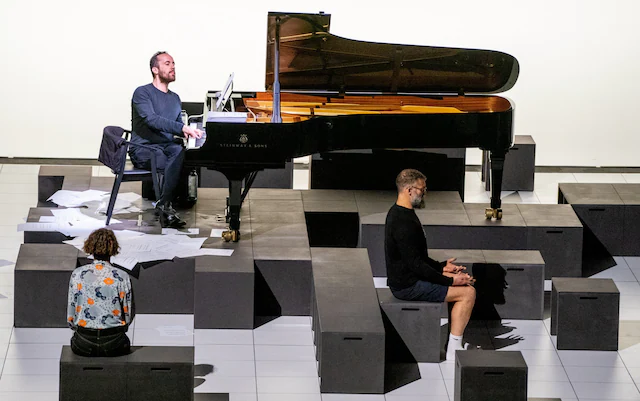

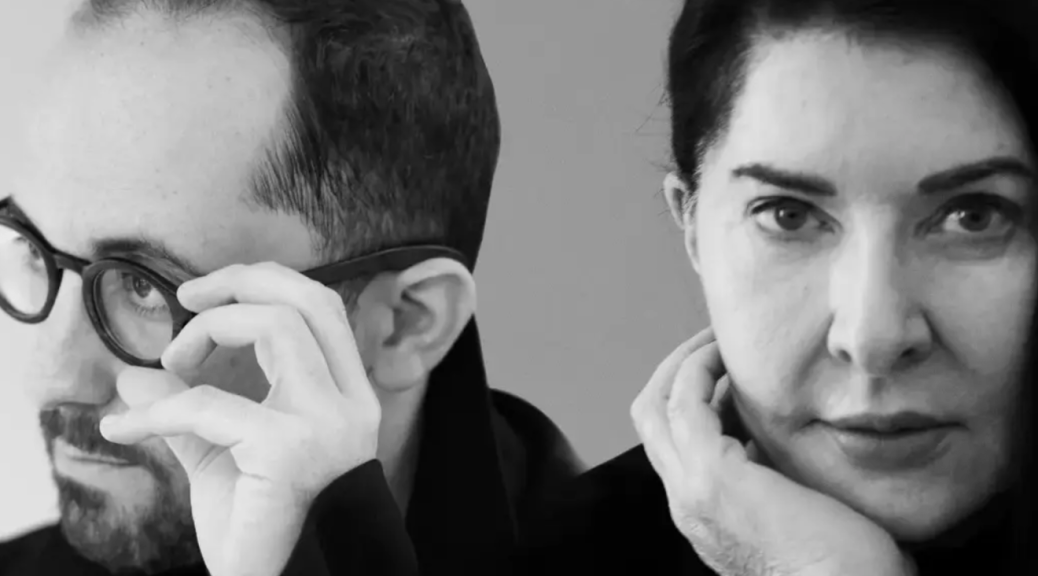
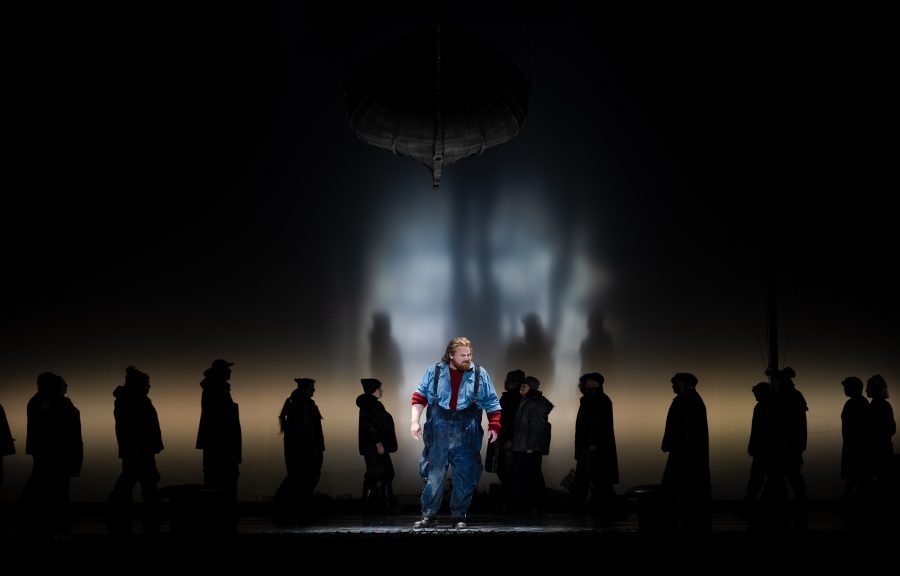
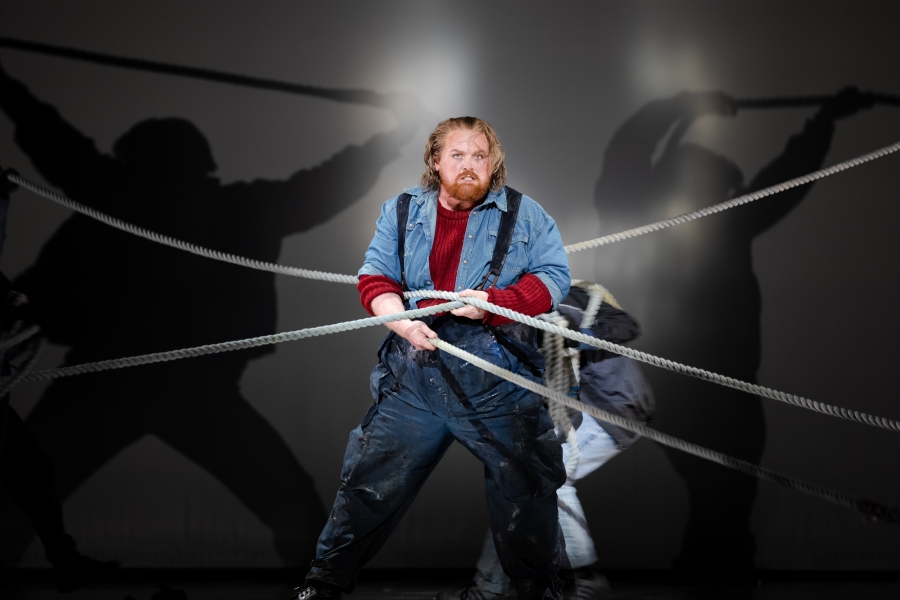


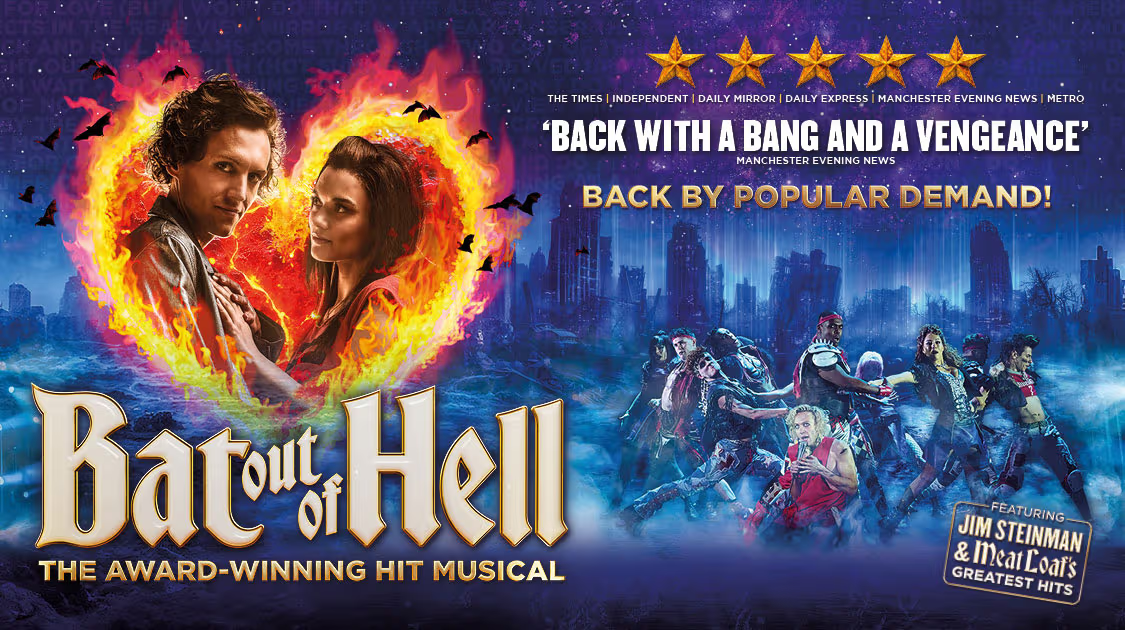
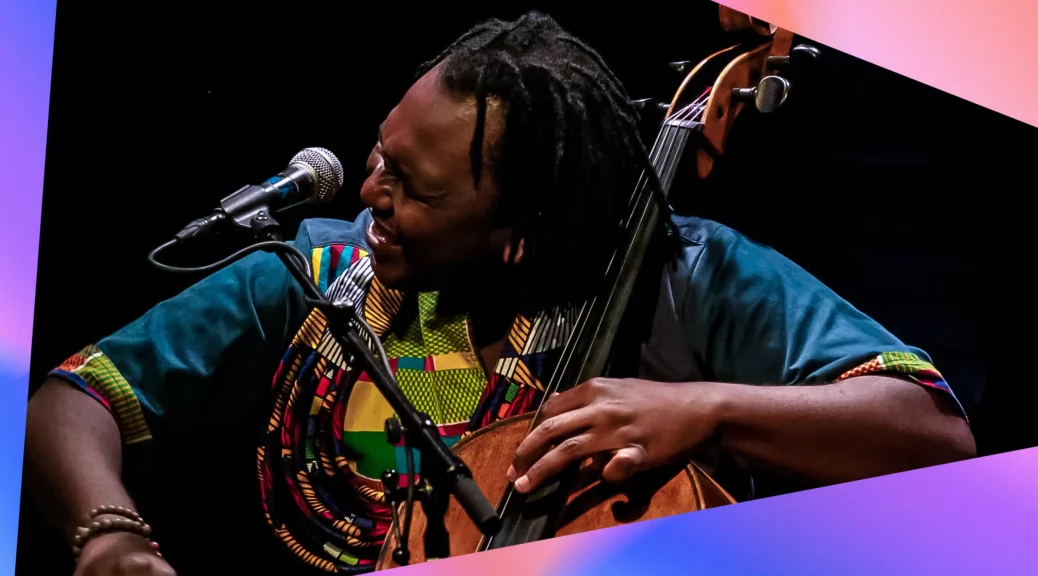
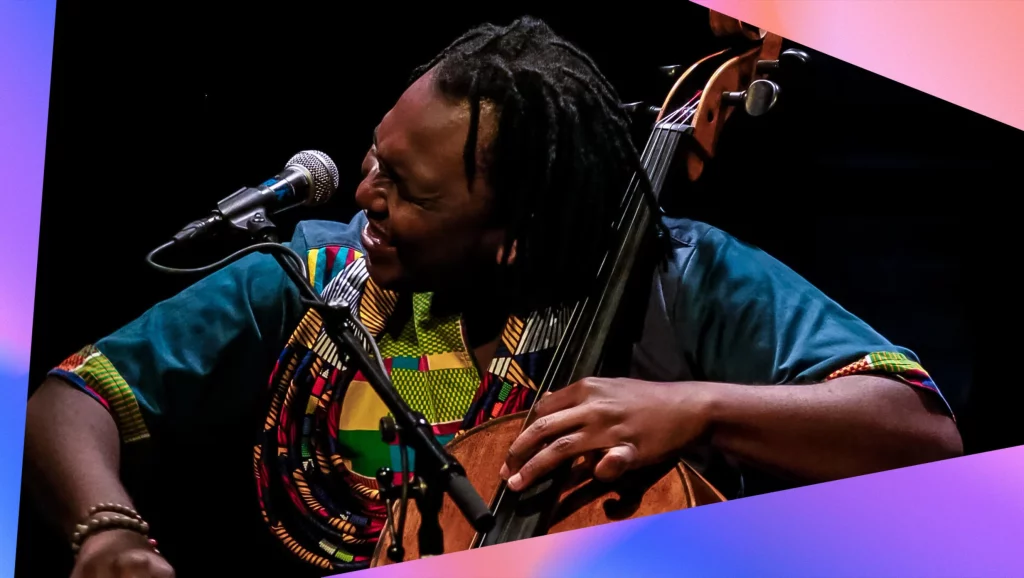
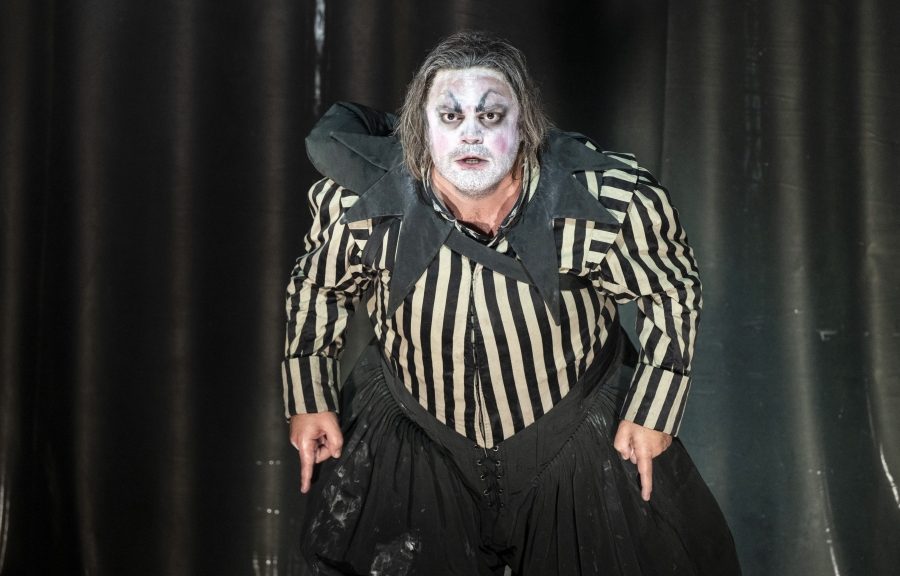
 (3 / 5)
(3 / 5)